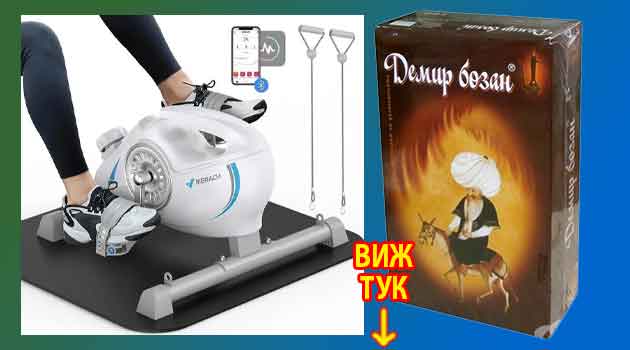Безопасно възстановяване след коронарография: Първите стъпки. Какво представляват упражненията след ангиопластика и катетризация. Уреди, билки, специалисти и клиники с телефони и адреси.
Упражненията след ангиопластика са внимателно структурирана програма от физически активности, предназначени да укрепят сърдечния мускул и да подобрят сърдечно-съдовата функция. Според клиничните изследвания, кардиологичната рехабилитация намалява хоспитализациите и подобрява качеството на живот.
Редовната физическа активност укрепва сърцето, понижава кръвното налягане и холестерола. Активните пациенти имат по-малко усложнения в сравнение с тези, които остават заседнали, потвърждават специалистите от PhysioHealth център за рехабилитация.
| Фаза на възстановяване | Препоръчителни активности |
| Първа седмица | Кратки разходки 5-10 минути, леки движения в дома |
| Седмици 2-3 | Удължени разходки до 15-20 минути, леки разтягания |
| След 4-та седмица | 30-минутни разходки, велоергометър, плуване |
Ключови препоръки възстановяване след коронарография
Клиничните насоки препоръчват поне две седмици нисък режим на активност след изписването. През този критичен период стентът се установява и тялото се адаптира към новите медикаменти.
Съдържание:
Кардиологичната рехабилитация се състои от три фази. Първата започва в болницата с леки упражнения до леглото. Втората фаза е амбулаторна и продължава 3-6 седмици с индивидуално обучение и структурирани тренировки. Третата фаза акцентира върху самостоятелността и поддържането на физическата форма.
Можете да започнете кардиологична рехабилитация една седмица след планова ангиопластика. При по-интензивни упражнения кардиологът може да препоръча стрес тест около 4-6 седмици след процедурата.
Примери за кардио упражнения с ниско натоварване
- Ходенето – основа на възстановяването. То укрепва сърцето без високо натоварване върху ставите. Изследвания от Харвардското медицинско училище показват, че ходенето намалява риска от сърдечно-съдови инциденти с 31%.
- През първата седмица започнете с кратки разходки около дома на равен терен. Спрете при гръдна болка, замайване или задух. Постепенно увеличавайте дистанцията, но слушайте тялото си.
- Лекото колоездене е отлично за сърдечно-съдова издръжливост. За сърдечни пациенти стационарният велосипед често е по-безопасен, тъй като осигурява по-добър контрол върху скоростта и съпротивлението. 20-минутно леко каране помага за подобряване на кръвообращението.
- Плуването и водните упражнения предлагат цялостна кардио тренировка с минимално натоварване на ставите. Водната изместимост намалява ефекта от телесното тегло, правейки го почти безударен тип упражнение. Уверете се, че температурата на водата е комфортна (25-28°C).
Погледнете и ТОВА: Бързо сваляне на кръвна захар. Мнения: Как да стане лесно и трайно.
Оборудване за домашно възстановяване
Педален тренажор за кардио възстановяване
Педалният тренажор, известен още като мини велосипед, е компактно устройство за кардио тренировки с ниско натоварване. Може да се постави под бюро за упражнения на краката или на маса за ръцете.
Предимствата включват плавно, контролирано движение, което намалява стреса върху ставите. Редовната употреба укрепва сърдечно-съдовата система, повишава безопасно сърдечната честота и насърчава кръвообращението. Педалните тренажори са особено полезни в програмите за кардио рехабилитация.
Физиотерапевтите препоръчват използване на педален тренажор няколко пъти дневно за кратки периоди (10-15 минути), вместо една дълга сесия. Този подход осигурява пълна тренировка без преумора.

Изберете и поръчайте на промоция подходящия уред за възстановяване след коронарография от бутона по-долу.
Велоергометър за рехабилитация до леглото
Велоергометрията до леглото е подходяща за пациенти след сърдечна хирургия, особено след операция на сърдечна клапа. Интервенцията може да започне в интензивното отделение и да продължи до изписването.
Клиничните ползи включват подобрена физическа функционална способност, по-добри резултати при 6-минутен тест с ходене и съкратен болничен престой. Изследванията не показват допълнителни странични ефекти в сравнение с обичайните грижи.
Започнете с кратки сесии от 5-10 минути и постепенно увеличавайте продължителността. Използвайте регулируемо съпротивление, започвайки от много ниски нива. Необходимо е внимателно наблюдение на сърдечната честота, кръвното налягане и кислородната сатурация.
Стационарни и мини велосипеди за рехабилитация
Стационарните велосипеди предлагат контролирана среда за упражнения. Седналата позиция премахва тежестта от краката, минимизирайки стреса върху долните стави. Лесно е да проследите напредъка чрез разстояние, нива на съпротивление и мониторинг на сърдечната честота.
Оптималните насоки за използване включват започване с 2-3 непоследователни дни седмично. Започнете с 10-15 минути и постепенно увеличете до 30-45 минути на сесия. Наблюдавайте сърдечната честота, за да сте сигурни, че упражнявате в предписаната целева зона (обикновено 60-80% от максималната сърдечна честота).
| Тип оборудване | Препоръчителна употреба |
| Педален тренажор | 20-30 минути дневно, разделени на сесии |
| Стационарен велосипед | 30-45 минути, 3-4 пъти седмично |
| Еластични ленти | 2-3 дни седмично за силови упражнения |
План за структурирана домашна рехабилитация
Непосредствено след процедурата – първите дни
Първите 24-48 часа след ангиопластиката са фокусирани върху почивка. Разрешени са кратки разходки из дома (5-10 минути) и леки движения за основни грижи. Избягвайте тежко вдигане, шофиране и напрегнати дейности.
Внимателно наблюдавайте мястото на въвеждане на катетъра за признаци на кървене, подуване или необичайни синини. Свържете се незабавно с лекаря при гръдна болка, продължаваща повече от няколко минути, силен задух или разпространяващи се синини.
До края на първата седмица постепенно увеличете разходките от 5 до 10-15 минути. Поддържайте много лек темп, при който можете лесно да водите разговор. Правете няколко кратки разходки през деня, вместо една дълга сесия.
Седмици 1-3: Постепенно увеличаване на активността
Първа седмица след изписването: Започнете с 3-5 минути упражнения, 6-8 пъти на ден. Подходящи са постепенно по-дълги разходки, леки разтягания и леки домакински дейности. Продължете да избягвате тежки тежести и интензивно кардио.
Втора седмица: Увеличете до 5-10 минути, 4-5 пъти на ден. Можете да се върнете към леки домакински задължения, социални дейности и нефизическа работа с медицинско разрешение. Въведете педален тренажор или много леко колоездене, ако е одобрено.
Трета седмица: Преминете към 10-15 минути, 3-4 пъти на ден. Започнете по-структурирана програма за упражнения с 10-15 минути загряване, 20-30 минути основна активност и 5-10 минути заваряне.
Използвайте скалата за възприемано натоварване (RPE), целейки се в 11-13 по скала от 6 до 20. Трябва да можете да поддържате разговор по време на умерено упражнение, макар и с известно усилие, препоръчват от рехабилитационния екип на УМБАЛ „Света Марина“.
След третата седмица: Поддържане на напредъка
Седмици 4-6: За много пациенти пълното възстановяване настъпва в рамките на 4-6 седмици. През четвъртата седмица увеличете до 15-20 минути, 3 пъти дневно. Петата седмица – 25-30 минути, 2 пъти дневно. Шестата седмица – 30-45 минути, 2 пъти дневно.
С медицинско разрешение можете да включите по-енергични упражнения като джогинг, плуване или колоездене. Въведете леки силови тренировки 2-3 дни седмично с 40-60% от максималното едноповторно тегло.
Седма седмица и нататък: Достигнете до 60 минути непрекъснато упражнение веднъж дневно. Домашната програма трябва да включва 10-15 минути загряване с леко ходене и динамично разтягане, 30-45 минути основно упражнение и 10 минути заваряне със статично разтягане.
Продължете да използвате домашното оборудване като част от поддържащата програма. Педалният тренажор – 20-30 минути дневно за кондициониране с ниско натоварване. Стационарният велосипед – 30-45 минути, 3-4 пъти седмично. Еластичните ленти – за силови упражнения 2-3 дни седмично.
Редовното проследяване е от съществено значение. Посещавайте планираните контролни прегледи при кардиолога. Участвайте във формални програми за кардиологична рехабилитация, когато са налични. Водете дневник за упражненията, отбелязвайки продължителност, интензивност и симптоми.
Интегрирайте здравословни навици в ежедневието си. Целете се в поне 30 минути упражнения с умерена интензивност през повечето дни от седмицата. Практикувайте техники за управление на стреса като медитация и дълбоко дишане. Поддържайте здравословна за сърцето диета и осигурете адекватен сън за възстановяване.
Чаят Демир бозан при възстановяване след коронарография
Билкова подкрепа за сърдечно-съдовата система
Оригиналният чай Демир бозан на Фарма Витал, който се предлага на цена от 22 евро, представлява билкова комбинация, която е особено подходяща за възстановяване след коронарография. Съставът включва котешка стъпка, глог, бял имел, хвощ, великденче и царевична коса, като има положителен ефект при сърдечно-съдови заболявания и действа успокояващо.
Глогът като основна съставка е изключително полезен за сърдечно-съдовата система – той регулира кръвното налягане, подобрява циркулацията на кръвта и намалява риска от сърдечни проблеми. Билковата комбинация отразява се добре при нормализирането на кръвното, независимо дали е високо или ниско, и влияе благоприятно на хора, прекарали инсулт, служейки и за предотвратяването му. Това я прави подходяща за периода на възстановяване след евентуална ангиопластика.
При поръчка на две кутии има отстъпка от 4 евро – общата цена става 40 евро вместо 44. Продуктът се предлага в аптеки Фрамар, както и в над 50 лицензирани аптеки в страната с възможност за онлайн поръчка. Билковата комбинация притежава регистрация в Дирекцията по храните под номер 237/16.03.2011г. Принципно на пазара има много ментета, така че бъдете внимателни. Фалшификатите се познават по по-ниската цена и по това, че не са произведени от Фарма Витал. Също така може и да не са под формата на чай, а примерно като капсули, капки и каквото ви дойде на ум.
| Съставка | Действие върху сърдечно-съдовата система |
| Глог (цвят) | Регулира кръвното налягане, подобрява коронарната циркулация |
| Котешка стъпка (стрък) | Успокоява нервната система, намалява стреса върху сърцето |
| Бял имел (стрък) | Подпомага кръвообращението, има кардиопротективен ефект |
| Великденче (стрък) | Детоксикира организма, подпомага метаболизма |
| Царевична коса | Диуретичен ефект, намалява задържането на течности |
Начин на приложение и дозировка при възстановяване
Препоръчителната доза е 2-3 чаши чай на ден, което осигурява оптимален ефект без риск от претоварване на организма. Демир бозан се запарва във вряла вода за кратко и се приема като чай три пъти дневно на гладно, половин час преди хранене. При хронични заболявания може да се приема за по-дълъг период, но след 3 месеца употреба се препоръчва да се направи почивка от 1 месец и след това да се продължи, ако има нужда.
Пациенти споделят, че с помощта на чая са се излекували от страхова невроза и не са имали пристъпи вече няколко години, като подчертават важността да се купува оригиналният продукт за 22 евро, а не по-евтините имитации.
Пациенти с екстрасистоли споделят, че Демир бозан поддържа сърцето при леки разстройства в комбинация с препоръчаните от кардиолог медикаменти. Билковият сбор елиминира невротичната причина за сърдечни проблеми и е известно средство за терапия на тревожни състояния, което внася спокойствие и релаксираност, особено значима при сърдечни патологии.
Важно е да се отбележи, че оригиналният чай няма известни противопоказания и странични ефекти, но се препоръчва да не се смесва с други билки, за да не се намали ефектът, и може да се комбинира с всякакви лекарства.
Вижте и ТОВА: Демир бозан за възстановяване от исхемичен инсулт. Критични дни. При хеморагичен инсулт.
Специалисти по рехабилитация в България
Рехабилитация по домовете в София
- PhysioHealth – Център за рехабилитация предлага домашни посещения в София и Варна. Адресът им в София е ул. „Димчо Дебелянов“ 14, Блок 84. Телефон за връзка: 089 871 1707. Работят понеделник-петък от 08:00 до 20:00 часа. Специализират се в кинезитерапия, мануална терапия и неврологична рехабилитация.
- Orange Medical осигурява домашна физиотерапия със специалист Серкан Узун, който има опит с постоперативни състояния и кардиологична рехабилитация. Телефон: 0700 14 150. Покриват цялата територия на София.
- OFFICE THERAPY на ул. „Цветна градина“ 77-79 предлага професионални домашни посещения от квалифицирани кинезитерапевти. Работят с пациенти след инсулт, операции и травми.
| Център | Ценови диапазон |
| Beta Clinic София | 60-100 лв за посещение |
| Хелфен БГ | По договаряне |
| Рани БГ (тел: 0887 30 76 91) | От 60 лв |
Болници и клиники в София
- МБАЛ Национална кардиологична болница се намира на ул. „Коньовица“ 65. Телефони за записване: (02) 9211 211, 0882 529 267. Предлагат кардиологична рехабилитация след инфаркт и сърдечни интервенции. Достъпни са с метро – спирка Вардар, трамвай №3 или автобус №77.
- Acibadem City Clinic разполага с клиника по кардиология под ръководството на проф. Иво Петров. Предлагат интегрална диагностика, ендоваскуларна терапия и кардиологична рехабилитация.
- СБР Здраве е специализирана болница за рехабилитация с прием по НЗОК и НОИ. Имат акредитация с оценка „отличен“ за срок от пет години.
Рехабилитация във Варна
- PhysioHealth Варна се намира на бул. „Княз Борис I“ №139. Телефони: 089 871 1707, 089 995 7845. Работно време: понеделник-петък 07:00-20:00, събота-неделя 08:00-20:00 (само масажи). Основателите Димитър и Теодора Димитрови предлагат Мълиган терапия и кинезитерапия.
- УМБАЛ „Света Марина“ разполага с клиника по кардиохирургия, която предлага рехабилитация след сърдечни операции по клинични пътеки за продължително лечение след инфаркт.
- СБР „Медика-Албена“ близо до Варна приема записвания на телефон 0700 12 110. Работят всеки ден от 08:30 до 17:00 часа. За медицински въпроси: 0877-701-260.
Рехабилитация в Пловдив
- Kinesio Life предлага домашни посещения за 70 лв за 60 минути. Работят в Пловдив и Стара Загора със специализация в кинезитерапия и мануална терапия.
- МЦ Раредис на ул. „Маестро Г. Атанасов“ 22 предлага физиотерапия и рехабилитация. Телефон: (032) 575 797. Домашно посещение с д-р Мери Давидова – 80 лв, с д-р Фани Колачева – 25 лв.
- PhysioFix предлага домашни посещения в Пловдив за 70 лв (60 минути). Пакет от 10 посещения – 630 лв. Телефон: 0884 025 333.
Още нещо интересно ТУК: Вътрешно треперене на краката и тялото. Лечение с билки и лекарски трикове и упражнения.

Марта Савова е журналист и писател, специализиран в областите здравеопазване, технологии и наука. С над 20-годишен опит в сферата, тя е публикувала множество изследователски статии и има страст към споделянето на знания. Марта е редовен сътрудник на различни медии.



